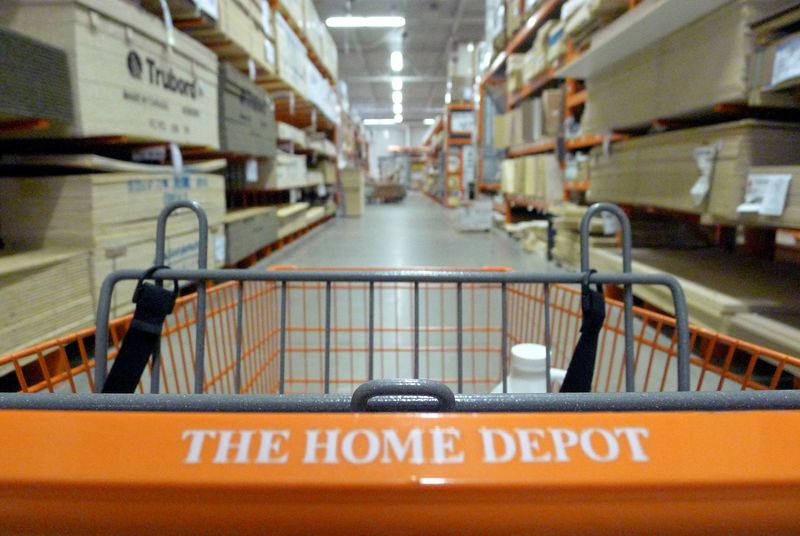By Deborah Mary Sophia
(Reuters) -Home Depot on Tuesday posted better-than-expected quarterly results, cemented by Americans' steady spending on small-scale projects around their homes even as they sharply cut back on larger remodeling and renovation.
Shares of the company, which announced a new $15 billion share repurchase program, rose about 1%, with the second quarter benefiting from a recapture of seasonal sales lost earlier this year due to a damp start to Spring.
The top U.S. home-improvement chain's results come ahead of reports from Walmart (NYSE:WMT) and Target later this week, with investors focusing on discretionary spending trends as customers battle sticky inflation and higher borrowing costs.
Home Depot (NYSE:HD)'s quarterly customer transactions drop of 1.8% improved from the prior quarter, driven by higher sales of items including plants and landscaping supplies, and steady demand from Pro-customers for products like fasteners and insulation.
Meanwhile, the company maintained its annual forecasts after cutting them in May.
"While there's a lot of positives in the macro and with the consumer, we still see enough uncertainty, largely driven by (consumer spending shifting from goods to services)... (to not) revise our guidance," CEO Ted Decker said on a post-earnings call.
Quarterly comparable sales fell 2% in the second quarter, smaller than expectations for a 3.54% drop, according to Refinitiv IBES data. The company's per-share profit of $4.65 also topped estimates of $4.45.
Big-ticket transactions, or those over $1,000, remained under pressure, declining 5.5%. Demand for one-time purchases like patio furniture and large appliances was soft, said Billy Bastek, executive vice president of merchandising.

Some green shoots are emerging in the housing market. New home sales jumped 12.2% in May to the highest level in nearly 1-1/2 years, while new home construction surged by the most in over three decades.
"Whether the bottoming in the housing market would translate to sales or not - that's where there is caution from investors," Telsey Advisory Group analyst Joe Feldman said.